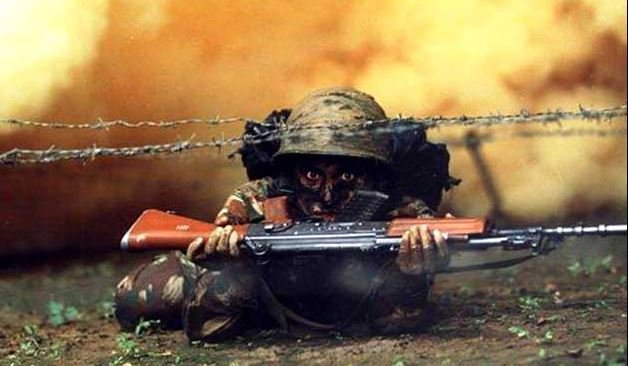Editorial . . . . . . . .
The central government’s launch of the armed forces’ ‘Agnipath recruitment scheme represents a significant shift in Indian army recruitment. The fact that 75% of new recruits only serve for four years has evoked mixed reactions, with some veterans of the armed forces and defence strategists expressing concern about the employment of new recruits, who will be known as ‘Agniveer’ after their brief stint in the armed forces, which cannot be ignored. The Union Cabinet defined it as “an appealing recruitment programme for Indian youngsters to serve in the Armed Forces,” and set the age range for eligibility at 17 and a half to 21 years. The merits of this transformative reform of new recruitment policy of the Armed Forces listed are: armed forces profile will be youthful and dynamic, a sufficiently good financial package for the Agniveers, an opportunity for Agniveers to train in the best institutions and enhance their skills and qualifications, availability of well-disciplined and skilled youth with military ethos in civil society and appropriate re-employment opportunities for those returning to society and who could emerge as role models for the youth of the county.
The Agniveers will be recruited in the Services for a four-year period under their separate service Acts. They would create a new rank in the Armed Forces that would be unique from any other presently in use ranks. Agniveers will be provided with the opportunity to apply for permanent enrolment in the Armed Forces after completing four years of service, based on organisational requirements and policies established by the Armed Forces from time to time. These applications will be reviewed centrally based on impartial factors such as performance during their four-year engagement period, and up to 25% of any specific batch of Agniveers will be recruited in the Armed Forces’ regular cadre. The government has clarified that those selected for employment as a regular cadre in the Armed Forces will be required to serve for a minimum of another 15 years and will be subject to the existing terms and conditions of service for Junior Commissioned Officers/Other Ranks in the Indian Army and their equivalents in the Indian Navy and Indian Air Force, as well as Non-Combatants enrolled in the Indian Air Force. After a four-year tenure, three-quarters of Agniveers will be released from service with a severance package of Rs.11.71 lakhs, but no pension. The union government claims that the new recruitment method will slash the defence budget from about Rs 5.2 lakh crore to virtually half due to lower wage and pension costs. Due to higher revenue outlays in the military defence budget due to increased wage and pension costs, rather than capital outlays, the armed services have been unable to modernise with suitable and effective weaponry and technologies to address developing threats. Service veterans and defence specialists who have raised concerns about the new recruitment policy claim that the defence budget must be protected in all areas, including recruitment, training, wage, pensions, and modernization. They are concerned that a four-year term may tinker with the capability of the armed forces. The impact of the new recruitment policy on the battle worthiness of such short-tenure soldiers is also a source of concern, given the short training period of six months compared to the two to three years of training currently imparted in training soldiers for inhospitable terrains along the country’s border.
Another justification they make is that rehabilitation of Agniveers after they have served will remain a top priority because they believe that if they are unable to find gainful employment after serving, unscrupulous elements will target the trained youth for unlawful and banned activities. The government and army experts and veterans supporting the new policy argue that service training will instil severe discipline, a strong sense of patriotism, and nation-building, making them immune to anti-social and anti-India forces and elements. The Ministry of Home Affairs’ announcement that Agniveers will be given first priority in recruitment to central paramilitary forces and the Assam Rifles has raised hopes of putting training and experience gained while serving in the armed forces to good use, as well as providing opportunities for post-retirement rehabilitation. The lack of job opportunities to address the country’s rising unemployment rate raises concerns about finding work, and the government’s announcement of measures for Agniveer rehabilitation will lure young people to join the new recruitment policy. A professional military force’s human resources policy is critical in responding to growing security challenges, and changes in recruitment and retention must be a dynamic process to keep up with changing realities and guarantee that the armed forces do not fall behind. The government’s patience in listening to service veterans will ensure that the drastic shift in recruitment goes off without a hitch.




